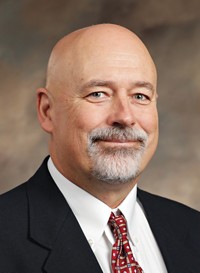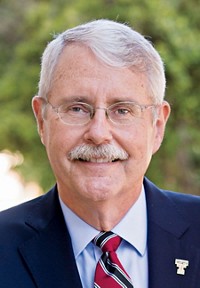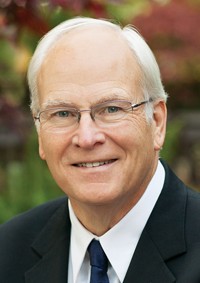Advertisement
Grab your lab coat. Let's get started
Welcome!
Welcome!
Create an account below to get 6 C&EN articles per month, receive newsletters and more - all free.
It seems this is your first time logging in online. Please enter the following information to continue.
As an ACS member you automatically get access to this site. All we need is few more details to create your reading experience.
Not you? Sign in with a different account.
Not you? Sign in with a different account.
ERROR 1
ERROR 1
ERROR 2
ERROR 2
ERROR 2
ERROR 2
ERROR 2
Password and Confirm password must match.
If you have an ACS member number, please enter it here so we can link this account to your membership. (optional)
ERROR 2
ACS values your privacy. By submitting your information, you are gaining access to C&EN and subscribing to our weekly newsletter. We use the information you provide to make your reading experience better, and we will never sell your data to third party members.
Policy
For President-Elect: Peter K. Dorhout
September 12, 2016
| A version of this story appeared in
Volume 94, Issue 36
Kansas State University Section. Kansas State University, Manhattan, Kan.
Academic record: University of Illinois, B.S., 1985; University of Wisconsin, Ph.D., 1989
Honors: ACS Fellow, 2013; Oliver P. Pennock Service Award, Colorado State University, 2011; Distinguished Service Award, Colorado School of Public Health, 2008; Distinguished Service Award, Office of International Activities, Colorado State University, 2008; ACS Colorado Local Section Service Award, 2004; Undergraduate Research Mentor Award, Colorado State University, 2002; Alfred P. Sloan Fellow, 1997; Camille Dreyfus Teacher-Scholar, 1997; Exxon Faculty Fellow Award in Solid-State Chemistry, ACS Divison of Inorganic Chemistry, 1996; National Science Foundation Career Award, 1996; Research Corporation Cottrell Scholar, 1994; Sigma Xi, 1991
Professional positions (for past 10 years): Kansas State University, professor of chemistry, vice president for research, 2016– , dean of arts and sciences, 2012–15; Colorado State University, Pueblo, interim provost, 2011; Colorado State University, vice provost for graduate affairs and assistant vice president for research, 2004–11, Office of International Programs, interim executive director, 2005, College of Natural Sciences, associate dean, 2002–04, professor of chemistry, 2002–12
Service in ACS national offices: Board of Directors, District V, director, 2010–12; councilor ex officio, 2010–12; Executive Committee, 2011–12; Committee on Budget & Finance, 2015–17, committee associate, 2014, Communications Subcommittee, chair, 2015; Presidential Task Force on the U.S. Employment of Chemists, 2015–16; Committee on Professional & Member Relations, chair, 2011–12; Sustainability Stakeholders Steering Group (S3G), member, 2011; Graduate Education Advisory Board, chair, 2009–11; International Center Working Group, chair, 2010; International Activities Committee, chair, 2009; Board Oversight Group on Leadership Development, 2005–09; Joint Board-ConC AET, chair, 2008; Committee on Committees (ConC), 2002–08, chair, 2008, secretary, 2005–06; Presidential Task Force on Stopgap Funding, 2001–02; Committee on Divisional Activities, 2001, committee associate, 2000; Younger Chemists Committee, 1996–98, committee associate, 1995, consultant, 2013–14
Service in ACS offices:Colorado Section: councilor, 2001–09; Nominating Committee, 2000, 2008; newsletter editor, 1999–2004; chair and program chair, 1999; chair-elect, 1998. Division of Inorganic Chemistry: councilor, 1999–2001
Member: Member of ACS since 1985. American Association for the Advancement of Science; Society for Advancement of Hispanics/Chicanos & Native Americans in Science, life member. ACS Divisions: Industrial & Engineering Chemisty, Inorganic Chemistry, Nuclear Chemistry & Technology
Related activities: Research Corporation Board of Directors, 2003– , advisory committee, 1998–2004; ACS Leadership Development System, cofacilitator, 2013–15; ACS Webinars, facilitator, 2013; Defense Threat Reduction Agency, consultant, 2013; Army ROTC Influencers Course, 2012; NSF Workshop on Solid-State & Materials Chemistry, organizer, 2004–08; International Science & Technology Center, Russian Federal Nuclear Center, U.S. project adviser/director, 1998–2006; Los Alamos National Laboratory, consultant, 1988–2006; 219th ACS National Meeting Symposium on New Synthetic Methods in Solid-State Chemistry, symposium coorganizer, 2000; author of more than 110 peer-reviewed manuscripts and book chapters
Dorhout’s statement
Of the members, by the members, and for the members. In today’s political environment, this might be a worn-out cliché, but for our society, this is the critical requirement of any president. ACS was created 140 years ago by 35 chemists based on this principle. We have grown into the world’s largest scientific organization, but we did it through the devoted volunteers in local sections and divisions. We are a membership organization for the benefit of our many diverse members, which then promotes chemistry and the profession.
We have problems. Our profession is in a tough situation. I recognize the difficulties that our members, young and old, face as I serve on a presidential task force investigating the challenges with employment. As a faculty member and academic leader for many years, I have witnessed that universities are struggling with grant funding and other financial support. Industry continues to be threatened and changed by global forces that are impacting jobs across America. Education is being impacted by cuts to both K–12 and higher education institutions, eroding the quality of our classroom and laboratory experiences. Chemistry has an image problem, which greatly handicaps education, employment, and industry. We need to focus on our original charter and be a leading society for change, promoting and advancing our members.
Can we solve them? I could list the usual promises, such as easy access to ACS Publications, working with Congress to get funding, and influencing the media to spread the benefits of chemistry. No president has a magic wand to accomplish significant change overnight or even during their term. However, working with the council, board, local sections, divisions, international chapters, and most important with you, the nearly 157,000 members, we can all make a difference. The best solutions to problems never come from top down. They come from the stakeholders; they are brought forward by the members. We must invest our resources in the members. Together we can make progress toward improving the lives and advancing the careers of our members and the people of the world through the transforming power of chemistry.
How can we start affecting changes?
Promoting industrial job growth. Focusing on the future, I will build on the partnership with Corporation Associates and engage stakeholder groups of key ACS committee representatives in discourse and action. An Industry Partners Advisory Board (IPAB) should be established and tasked with advising ACS about aiding our nation’s industries, promoting the chemical enterprise to Congress, and preparing chemists for the future workforce.
Enhancing education. Teaching chemistry should be a partnership. We need to build stronger alliances and prepare our workforce to be successful in a global marketplace. The American Association of Chemistry Teachers (AACT) is positioned to engage members in dialogue around K–12 chemistry education; our college and university faculty are key to preparing the next generation of chemists, and so are our industrial members. ACS should continue to lead in promoting the highest standards and safest chemistry education programs and enhance the educational opportunities for all students, including nontraditional and adult learners. Members from industry and the academy should be joined in regular dialogue as part of the IPAB I mentioned, discussing and promoting the critical skill sets necessary for new chemists as well as how we can keep our established chemists engaged in lifelong learning to enhance their skills.
Chemistry is rewarding, if you have a job! Our task force on employment has worked diligently on improving the domestic employment situation for starting and experienced chemical professionals. We investigated, among other things, the imbalance of supply and demand and the training needed for preparation for industrial jobs, entrepreneurship, and career development. My time as president will be spent on realizing the key recommendations being made by the task force.
I have the qualifications. As we endeavor to work together to improve our employment situations and invest in our members, the president needs to embrace an atmosphere of open communication and transparency. I am proud of my record of transparency as an academic and ACS leader. Given my track record as a collaborative leader in ACS activities from the board of directors to the local sections, divisions, and committees, people know that I get things done—I am a member for the members.
I’ve enjoyed learning and growing among you. I want to continue to work with you—because we are in this together—to ensure that ACS continues to advance the profession, continues to be relevant to members, and continues to make a difference. Members standing for members. For more about my platform, please visit my website, peterdorhoutACS.com, and follow me @PeterDorhoutACS.
Candidates will not be notified of comments left on this webpage. To contact this candidate directly, e-mail dorhout@ksu.edu.






Join the conversation
Contact the reporter
Submit a Letter to the Editor for publication
Engage with us on Twitter